|
Since the beginning of the fitness industry we have seen ads and media pushing "Thin makes you pretty." "Thin makes you healthy and desirable!" Toxic words that bevel deep into the subconscious, continually screaming at you that you are not good enough.
Diet culture has created a very toxic mindset with it. Telling us that we are nothing if we eat too much, eat the wrong foods, and if we do not fit a size 20" waist. While we know it's a toxic lifestyle, we continue to allow it to infiltrate our daily lives. What happens when we allow this to happen? Let's take a look! Firstly, what is diet culture? Diet culture refers to a particular mindset that values thinness, appearance & shape above overall health and wellness. 1. Negative self talk/fat talk ensues. This is a very dangerous side effect. This one in particular leads to many mindset changes that lead to physical changes. This can lead to: - Body dysmorphia: this is when you look in the mirror and see something completely different that what is actually showing. I still see the overweight and unhealthy 20-something year old looking back in the mirror at me some days. I have to remind myself with progress pictures how far I have actually come in my health over my looks and that where I am is a much better place than where I was. - Eating disorders: negative self talk definitely leads us into eating disorders. Our subconscious bringing to the the forefront of our minds that if we eat that we will be worthless, unworthy, and fat. That this food and that food are bad and we need to eliminate them to achieve our goal of thinness. Anorexia, bulimia, and even binge eating at times. All three of these disorders mess up the balance of homeostasis in the body and in the hormones. Without proper nutrients our body begins to break down. Not just muscle, our organs begin to stop working properly, we can no longer digest properly, mood is out of balance due to hormone influxes and your sleep will suffer as well due to hormone influx. - Feelings of unworthiness: when we feel this way, depression is more than likely to follow. Telling ourselves we are not worthy of love, life, the promotion or anything else radiantly positive in life due to our looks is self torture. It is self sabotage for the things we truly desire in life. This will cause stress hormones to rise and radical damage to follow in the organs, mind and hormones as well. Affecting more than just our thoughts, but again how our body operates and functions overall. - Fat talk: this is exactly how it sounds. Individuals speaking about themselves as if they were overweight. "My thighs are too big" "I need to lose 5 pounds" "This milkshake has too many calories in it". These also lead to eating disorders. 2. Caloric restrictions. This is a HUGE one I talk about with my clients often. There is no such thing as good or bad food. Diet culture teaches us that there is. "You can't have that ice cream! It will make you fat!" Well I ask, what is that ice cream made from? Coconut milk or cows milk? It is not that there are bad foods or good foods for us, there are simply ingredients that either work with our bodies or against them. This is a toxic mindset created from diet culture. Caloric restrictions lead to eating disorders such as anorexia and bulimia. Most prevalent in teens, including boys. 3. Photo editing to fit the criteria. This is huge one since the birth of social media. Before we just airbrushed and photoshopped ourselves through Photoshop. Now we swipe and see a filter that makes us as perfect skinned as the porcelain doll your grandma gave you as a kid that still creeping you out in the back of your closet. We filter and eventually this is how we perceive ourselves in the mirror one day without the filter which creates a whirlpool of mental issues, low self-esteem and bodily self harm like eating disorders. Photo editing is fun and all, but let's save it for the pictures that look like you're fighting a really big dragon, eh? In 2019 a studied showed that 90% of Americans aged 18-29 used social media daily and that of those 50% regularly used social media editing tools. 50% were men and 70% were women. How do we stop diet culture talk? This is simple to understand, difficult to implement as it is so engrained into our society now.
So there are many ways we can overcome diet culture speak and lifestyle choices. Most of them are being more mindfully aware of what we are choosing in those moments.
0 Comments
 Stomach bloat is no joke and pretty common. It can cause a lot of pain and discomfort. So how do we eliminate it altogether? There are some pretty simple ways that we can do this. 1. Eat less processed foods, including dairy. I said it, dairy is a culprit here as well as the McDonald's you had for breakfast, the bag of chips you had for "lunch" and the take out you ordered in for dinner because work left you too lethargic to cook. Processed foods also harm our gut microbiome. This is how we digest well. When I lessened the amount of processed foods and take out foods I was consuming, I noticed a lot more than bloat disappear from my body. I also noticed inflammation lessen, aches and pains lessened, and my brain fog even lessened. Now that isn't to say I never do, I just moderate. In the beginning, I eliminated to heal my body. Allowing detox to take over, this can take years to fully detox from processed foods. One last point about processed foods, the chemicals, emulsifiers and preservatives used in them block the neuroreceptors to the gut liner that communicate with the brain. They tell the brain that you are full and satiated and to stop consuming whatever you are consuming. When we ingest processed and chemical-filled foods we block this step and tend to overeat. Left wonder why we are feeling bloated, hurting and still hungry. 2. Moderate that dairy or eliminate it. Why? It's just as processed as the other foods. Filled with emulsifiers and fortified with vitamins because they were stripped from it during processing. Unless you are consuming RAW cheese and milk, or goat or sheep milk, it's best to steer clear. Milk in the use tends to turn straight into sugar as well and mess with our glucose levels. You can also end up ingesting and absorbing whatever hormones went into that cow during their raising, this will mess with your body's own homeostasis levels. And lastly about dairy here, I found this highly fascinating and they are still researching more into this. Antibiotic resistance. When a cow gets sick it is given antibiotics, just like a human would be given. This going right into the milk you consume, making it impossible for the antibiotics to work when you are given them during your own time of illness. 3. Exercise and get movement in daily. This seems to be the toughest one for us all. We go to to work, usually sit at a desk many of us. Then we arrive home and sit more telling ourselves this is "relaxing". While it can be relaxing to sit in front of the TV and veg out while you shut your brain off for the day, movement is medicine. Movement and exercise keeps our bodies healthy and strong, with even stronger immune systems. Exercise balances hormones, forces the body to use the fuel it was given for movement and recovery of muscles. It also helps with digestion! When you exercise you are moving your blood around a lot more, the flow increases and particularly to the peristalsis of your gut. This causes it to move around and digest food more and more efficiently by massaging your food. This in turn breaks down your food and is absorbed by the gut liner and dispersed throughout the body. 4. Drink more water. Water is such a powerful force, not only in nature but within the human body as well. As we are made up of mostly water, we need it to maintain our complexion, transport nutrients and other important elements around the body and for proper digestion and bowl movements. Without water we also, die. Water helps break food down and move it through the body in they way that it was meant to be moved. Drinking water after a meal helps to do this and keep you satiated and full, preventing over-indulging moments. Now that you have four simple steps to relieve your body of the bloat, you're ready for the next steps. To take them. Our world is constantly changing and evolving. We are always learning new information and making new discoveries. One of my recent favorite discoveries has been how powerful Vitamin D is. Personally, I knew it was vital! It is in fact a hormone and not a vitamin.
Vitamin D plays a vital role in many functions and organs in the human body. There are benefits and there are major consequences for deficiency. Let's take a look. 1. Healthy skeletal structure. Everyone needs strong and healthy bones to support the muscle, organs and everything else we carry with it. Providing Vitamin D to your body can help to strengthen the bones in our bodies by playing a vital role in calcium and phosphorus regulation. When this does not happen and the body has a deficiency of Vitamin D the kidneys begin to excrete Vitamin D that is not being absorbed. 2. Healthy children. Children are often fed and told they are getting enough. Unfortunately with the soil content nowadays this is no longer true. Giving your children a Vitamin D supplement could save them from things such as high blood pressure and rickets. There is also connection to low Vitamin D levels and asthma in children. 3. Mood regulation. Vitamin D is a regulator of happy hormones as well. When we do not have enough, our brains produce less serotonin and we can become fatigued, brain-fog, and more. While there are great benefits to all, there are major downfalls to having a Vitamin D deficiency more than there are benefits. (This is not to scare you into rethinking your supplement regimen, but rather to educate so we can better our regimens.)
Wondering where you can get great sources of Vitamin D? Here are some great ways to get Vitamin D into your daily routines.
Sources of food for Vitamin D:
So don't skip that walk with your dog and let them in the backyard, take them on a walk and soak up some sun! There are many ways for us to stay healthy that can be incorporated into our daily lives without disruption to other things we enjoy. Sited Sources: https://my.clevelandclinic.org/health/articles/15050-vitamin-d--vitamin-d-deficiency https://www.medicalnewstoday.com/articles/161618#benefits Hello once again Warriors! A couple of common questions I am asked is "How do you make your smoothies?" and "If you don't use ice, then what are you using for liquid?"So I thought I would sit down and take a few minutes to write out a bit of the process I use. Go over a few Do's and a few Don'ts as well as a bit of why's. Let's first tackle what I use for liquid if I don't use ice and why I don't use ice. Personally, it waters down the smoothie. When I think of a smoothie I think of a thick, creamy, milkshake like texture. MMMMmmmm! Adding water, even frozen water is going to thin this out. Adding too much water, or ice can also hinder the fats from coconut, almonds, avocados, etc to bind with other nutrients from other fruits and supplements in the smoothie to aide in transportation in the blood stream and body. Generally you want to leave a little room at the top to ensure a thick, milkshake-like texture in your smoothie. Next, handfuls of fruit is all you need. We think we need a ton of fruit and supplements to make a smoothie. One handful of fruit, each kind you like with some liquid of choice and you are in business! When it comes to adding in supplements the saying is something about the kitchen sink.... anywho, I disagree. I put quite a few supplements in our smoothies daily. We often use:
Leave your smoothie a good thickness. If it's too runny, you really have juice not a smoothie. Smoothies are more of a good, thick milkshake-like texture. All fruits and supplements should be blended smoothly and without any chunks before removing from the blender. This takes a pretty solid two minutes usually, depending on your blender. So next time you reach in the freezer for your fruit, think about how you want that smoothie to taste. Refreshing? Sweet? Dessert like? Tangy? Earthy? Then experiment with those ingredients! Fill your blender with fruit, veggies, a liquid base you like, and supplements you like. Fruits like cherries are very liquidy when they are blended, same with veggies like kale. Remember to leave a little room to compensate for liquid from the fruits and veggies. A thick smoothie is a delicious smoothie! Remember if it's runny, you have juice! **side note, not all smoothie are bright and eye-catching colors. This is why food dyes were invented. Keep your food organic and natural.**
As the summer months begin to creep in, especially here in Austin, I get asked more and more how to stay hydrated. Now before we get into some of the nitty gritty of this, please keep in mind that every body is different and therefore we all have different needs. When it comes to hydration this is an area that is subjective to the person and region we live in. For instance, I drink (try to, let's be honest I am human) roughly 2-3 gallons of water per day. To the average person this is a lot. When you factor in the fact that I have been an athlete and very active my whole life, and I live in a very hot and humid state this suddenly doesn't seem like so much.
When it comes to hydration we think water is the only way. While it is the main way there are a few other things involved that KEEP you hydrated throughout the day. Let's take a look. For starters, we need water to help metabolize and breakdown nutrients and remove waste from the body(including fat, this is why water helps you lose weight!). When your urine is a dark yellow, that is because you are dehydrated and your urine has too much urea in it. In order to remove harmful waste and toxins in the body we need to drink plenty of water to continue to flush them out. We also lose water in our tears, sweat, feces, breath and spit. So there are multiple ways to become dehydrated throughout the day if we aren't paying attention. Your food can be a source of hydration! Eating foods that carry electrolytes, such as cucumbers, salads, citrus, etc will help you stay hydrated throughout the day so you're not tediously drinking gallons per day. You also want to drink more than just water. Giving the body a small break for a tea or cold-pressed OJ is a great way to stay hydrated as well. Electrolytes are an important part of hydration because they not only give an electrical charge but they transport nutrients. So keeping these in your foods and even squeezing a bit of lime into your water can really boost your hydration, especially in those hot summer months. We also need to remember that while we all need at least one gallon of water per day, that amount changes person to person. These factors are determined by sex, age, weight, activity level and where you live. All of these affect how much water you need to stay hydrated and functioning. Let's be honest, no one wants to be dehydrated. Did you know it only takes 2% into dehydration for your brain and muscle to slow down and begin to stop functioning? That's not much! We also must remember that it takes longer to hydrate than it does to dehydrate the body. So, the first thing we should do upon waking it drink at least one 8-ounce glass of room temperature water straight out of bed. This will also boost and jump start your hydration from the very start of your day! How amazing is that?! Remembering to do this first step, is actually a pretty great way to set the tone for your day as far as water consumption goes. You want to set yourself up for success, not failure. If you are going to workout you'll want to consume at least 2 16-ounce glass/bottles of water before beginning any rigorous activity. If you are only working out for about an hour or under, you really only need water. If you are going HAM all day, you may want to throw a NuuN tablet or some BCAAs into your water. I never really recommend a sports drink as many of them are pumped full of caffeine and/or sugar. The sugar is really what will get you. Adding that extra sugar may make it taste delicious and give you a bit of energy boost, however it also dehydrates you. So I tend to stay away from drinks like Gatorade, Poweraide, Vitamin Water. Yes even VITAMIN water is not good for you. The reason you feel you need more is that sugar is taking over baby! Now you know the basic facts and operations of hydration. Grab your jug and mark it every hour if you need a reminder to drink. But whatever you do, drink that water daily! Protein, it's in just about everything we eat. Whether it's a complete protein profile or you are eating large quantities of food to gain that complete profile. On a daily basis I get asked one question; "How much protein should I take?" Now here is the first issue with that question, I don't know what your goal is. What you are working to achieve makes a difference on how much protein you intake. Before I get into how that works and how to find it, let's take a look at what protein is, how it works in the body, and how to utilize it properly. WHAT IS PROTEIN? Okay, for starters knowing what you are putting into your body is crucial. Knowing what protein is actually made of is also crucial. By then end of this you may be shocked to find out you could be taking in too much protein. So if you are someone who drinks BCAA's before, during and after your workout and then consumes a protein shake I am going to assume you don't eat well throughout the day. Amino acids, or BCAA's as most people know them, are the foundation and building blocks of protein. They make up protein. Amino acids are small units linked together to form a long chain. There are about 20 different amino acids that come together to form protein, each of which has it's own important role in the body itself. WHAT KIND OF PROTEIN SHOULD I TAKE? This is a great question, the answer is also simple. -What are you? Vegetarian? Pescatarian? Carnivore? These make a difference when it comes to the selection of your protein or protein supplement. The way your body digests food makes a difference on the type of protein you should be taking in. There is also a simple answer for why, different sources of protein digest and react differently with everyBODY. By the way, did you know that protein is in nearly everything? Including fruits, vegetables, plants, dairy, eggs, and even grains. WHEN IS THE BEST TIME TO TAKE PROTEIN? Studies have changed so many times over the years I have been in the industry, some have stated that you have a 30 minute window to drink or consume your gains. Others have told me I have two hours and others still, more recently, have shown and told me that I have a 24 hour window to get the proper amount of gains in. So here's the deal, I'm not going to give you a link for this I am going to share my personal experience. I have been a meat-eater before and vegan before. In my experience neither made a difference on when I was eating, just how much I ate. Consuming the proper amount is more important than the timeframe in which it consumed. Granted, I found the best time to consume my protein was in fact within a 30-60 minute window after my workout, otherwise not only was my body tapping into the fat left on me but if I waited too long past that hour I would get shaky and angry. If I ate before or consumed some protein during I would get sick. So here's the deal, listen to your body on this one. WHAT IS THE RIGHT AMOUNT OF PROTEIN FOR ME? Now this LARGELY depends on what your goals are, more and more studies are finding the proper average amount of protein intake daily is roughly .36g per pound that you weigh, for the average sedentary woman, or 46 grams per day. Obviously for men this will be a bit higher intake. However if you are active you will want to increase accordingly. This means that if you are very active, go to the gym several days a week and hitting at least a good solid 30-45 minutes of straight exercise, you will want to increase your intake between 1 and 1.2g per pound you weigh. WHAT ARE THE DANGERS OF TOO MUCH PROTEIN? Oh yes, they are dangers of too much protein. Don't be fooled into thinking that a high protein diet is the best way to gain muscle; it may be one of the quickest, however, it is not one of the best. For starters an excess of un utilized and broken-down protein will turn into fat in turn causing fat gain rather than fat loss which is the opposite of what most gym-goers are looking to achieve. Excess fat gain is fuel for cancer cells, inflammation, sickness, weak immune systems, slow cardiovascular systems, deteriorating bones, ashy skin, and many other issues that arise from excess fat. Why? Fat messes with the body's hormones and homeostasis when there is an over abundance. Other dangers of too much protein include dehydration, constipation, diarrhea, kidney failure/damage, cardiovascular disease, and even the eating away of calcium in your bones, leaving them frail and brittle. CONCLUSION There are no doubts in my mind, nor any studies that disprove, just how essential and important protein in fact is to our diets. However we should be mindful and watch our intake versus our goals. Knowing those few things can change the way your body changes and adapts to your new lifestyle or diet. image source: http://www.kulturizmas.net/forumas/p1032059
 Donuts. Cakes. Soda. Chips and salsa. Cookies. Crackers. Ice cream. What do they all have in common? We consider them to be junk food. Wait a minute! When did these become junk? Running a bakery based on organic and gluten free baked goods, it gets difficult explaining the difference between my baked goods and actual junk food. Let's have a comparison look shall we?
Imagine a day where you don't get that 3 o' clock lull and slow down. Where your body is continually fueled throughout the day by burning the fat already stored in your body. A body that doesn't run off carbohydrates but good fat, maintaining muscle mass and supports a positive mood and better cognitive function. This is a body that runs on a time-restricted feeding ketogenic diet. Whoa, mouthful! We have previously spoken about how nutrition and fitness are a power couple and they work best when combined. In this post we are going to explore why a keto diet is more beneficial when coupled with tRF, time-restricted feeding.
CARBOHYDRATES In order to understand how keto works we have to look at how carbs work in the body from being broken down to the utilization as fuel. As well as the effects carbs in abundance have on the body. There are three types of carbohydrates; sugars, starches, and cellulose (fiber). Sugars are simple carbs, something you would find in a doughnut. Starches come more from pastas, breads, and potatoes. Fibers are found in the tough parts of plants, they do not breakdown inside the GI tract. They instead pass through, pulling toxins and gunk with them to be excreted from the body. As many of us know, digestion starts in the mouth. Our saliva contains enzymes that initially breakdown carbohydrates, mainly the simple ones like your doughnut. Once food travels down the esophagus, mixing and becoming chyme(1), which then moves through the stomach. After passing the stomach and into the small intestine, it then begins to break down any complex carbohydrates left behind with digestive enzymes such as amalyse to lactase. Now, furthering the steps of this process eventually you get glucose out of your carbohydrates(2). Glucose is either burned as fuel or stored as fat and sugar entering the blood stream. KETOGENIC & KETOSIS Okay, so now we have a basic understanding of how carbohydrates work and are broken down in the system. When you go into ketosis it's a completely different ballgame. Ketones are the byproducts of fatty acids that have been broken down. They occur in the body in the absence of glucose. This is often the accidental result for those on low-carb diets such as Atkins. Getting into ketosis: first and foremost, in order to get into ketosis you must make sure that the amount of insulin in your bloodstream is as low as possible. Lower insulin levels mean higher ketone bodies produced. Now there is a trick to being in true, optimal ketosis and it's not just about the carbs. Watching your protein intake is also important, too much will breakdown and turn into glucose. The high the insulin in the bloodstream, the lower the amount of ketone bodies produced. When I tell people the real trick is eating fat, they look at me as if I am insane, but it's the truth. Going from a 42" waist nearly 5 years ago to a 27" waist, the proof is in the pudding. Fat is fuel, just as carbohydrates are fuel. The difference is that fat contains more calories and provides a cleaner energy source for the body to utilize. Personal experience: I get questioned about my diet and lifestyle often, reason being is that I am a vegetarian who can oddly enough, only consume most forms of pork. I have tried to take digestive enzymes, high carb diets, low everything diets; the only thing that has ever seemed to help and work for my own body is being on a raw food, high in good fats diet. This recently included the cutting out of most dairy, well except the occasional pint of Halo Top or Enlightened ice cream. For the most part, I wake up already feeling energized most days because I found a way to work with my body and do a diet I have used with clients and myself that has worked for all of us so far. Now I am not going to sit here and tell you that Keto is the only type of diet that I do, it's not. I couple it with tRF, time restricted-feeding. I literally don't eat for 12-14 hours at a time. I used to play with my caloric intake, I don't generally mess with it anymore. My body has done well at telling me how much I need. The funny part, I still consume roughly 3K per day and all before bed. Granted I don't eat again until noon most days, only consuming water and green tea in the morning. Before I get into the benefits I discovered for myself I want to cover a bit more about tRF. TIME RESTRICTED-FEEDING Recently I was listening to a podcast from one of my favorite ladies, Dr. Rhonda Patrick(3). She was talking about tRF with a guest on the show, it's a great listen and easy to follow insight into tRF. Using time restricted-feeding has many advantages, boosting the metabolism and producing ketone bodies are just a couple to be named. Restricting the time frame in which mice ate rather than restricting their caloric intake showed greater results for fat loss. To break it down simply without getting too science technical about it, skipping meals is not okay however limiting the time in which you consume the same amount of calories every day is okay. So as long as you are eating, I don't know say 2500 calories per day but only consuming those calories between 1pm and 8pm your body has another 17 hours to fast. Or just use the fat on your body to provide a cleaner, more efficient energy source throughout the day. Limiting the time frame in which you consume calories can also help control the amount of ghrelin(4) and leptin your stomach releases. Ghrelin increases hunger while Leptin decreases your hunger and both hormones respond to how well-fed you are. Studies have shown that restricting the time frame helped to control the levels of each hunger hormone due to the increase in your basal metabolism. The adipose tissue, or fat, decreased with fasting periods due to the body consuming existing fat cells to convert into ATP or energy. tRF is simple, willpower to stick to it may be your biggest challenge. (5) BRINGING IT TOGETHER So now that we have gone over the basics of keto and tRF I hope you can see how it would benefit so much more to combine the two and do both at the same time. Not only will keto turn you into a fat burning machine to begin with, tRF is going to speed that process along. It doesn't take much to fall into ketosis, go ahead and restrict that time frame of consuming those tasty calories and make your body really work for it. But remember, diets are just fads, like when JNCO made pipe-legged jeans. The point is this, just find what works for you and stick to it. 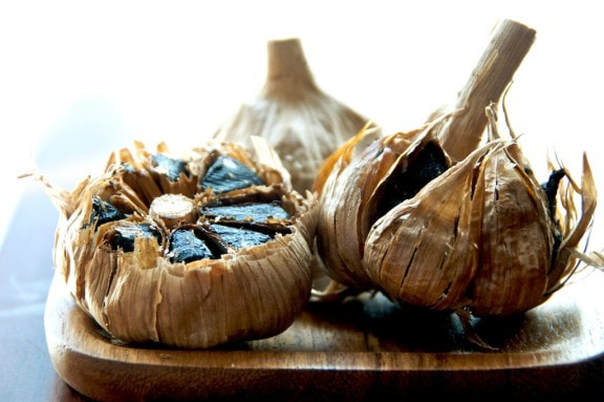 Garlic has been around forever as a spice in our foods. But why would you even think about adding it to your supplement regimen? Well I will tell you SO many added benefits that garlic has for your body, where I begin I have no idea! First off there are two main type of garlic; regular sprouted garlic and fermented black garlic(yum! it's my favorite). Let's start with regular sprouted garlic shall we? Garlic contains phytocompounds, these little guys work together to provide an array of responses in the human body. Along with being rich in manganese, calcium, phosphorus, selenium, and vitamins B6 and C it has the added benefit of affecting your bones and thyroid in the best ways. Have a weak immune system? No problem! Garlic helps the immune function through antibacterial, anti-fungal, antiviral, and anti-parasitic properties. It also helps to reduce inflammation, affects more than 150 disease, helps to reduce the risk of osteoarthritis, and protects against clotting, retards plague build up, helps to improve lipids, reduce blood pressure ALL while improving your overall cardiovascular health and circulation. Talk about a little guy who knows how to work! But I am not even CLOSE TO FINISHED! While all this is going on garlic is like a little warrior who is toxic to 14 different forms of cancer, including; brain, lung, breast & pancreatic. The reason being is it's high potency of antioxidants, one in particular called Allicin. Allicin releases sulfuric acid during the rapid decomposition phase, which in turn reacts with AND neutralizes free radicals in the body faster than any other known compound. Almost like a spark going off between a car battery and the clamp when you are trying to jump start a car. So on top of affect many diseases and cancers, Allicin also has been shown and proven to kill everything from candida to herpes, MRSA (Methicillin-resistant Staphylococcus aureus), drug-resistant TB and even HIV. Whoa! This next one makes PERFECT sense to me, when I was a child I got bit by bugs all the time! It's my blood type, so my mother, bless her loving heart, made me eat SO much garlic. I got to the point where I would ask for it by the clove. Why? Garlic can eradicate antibiotic-resistant bugs. Partly due to it's pungent smell, all the antioxidants keep bugs away. Along with this, Allicin has the added benefit of bacteria being able to develop a resistance to the compound. The only downfall I have found to Allicin is that it is short lived, lasting only about an hour. Black garlic Onto my favorite! Back in 2009 a Japanese study showed that black garlic, compared to freshly sprouted garlic, was more effective in the reduction of tumors. The study was published in the Medicinal and Aromatic Plant Science and Technology. More studies showed that black garlic was also double the antioxidants, higher concentrations of sulfuric compounds like SAC (s-allylcycteine). A big benefit of SAC is the inhibition of cholesterol synthesis. SAC is also more bioavailable than Allicin, and much more absorbable. Keep in mind that black garlics benefits may be better for SOME conditions but not others. It is lower in Allicin, making you more vulnerable to infections. In conclusion, both freshly sprouted garlic AND fermented black garlic have incredible benefits as a supplement. I would not put a gender specific or age specific category on these, I personally feel that everyone should be taking them. From young, to old, athletes to those who are just trying to better their overall health. SAC (mg/g) Calcium (mg) Phosphorus (mg) Protein (g) Black Garlic 5.84 36.66 80 12.5 Raw Garlic0 .32 5.0 40 2.2
FACTS:
SERVINGS: 6 SERVING SIZE: 2 ounces ENERGY: 416.3 TOTAL FAT: 31G CHOLESTEROL: 0MG SODIUM: 92.3MG POTASSIUM: 379.7MG TOTAL CARBS: 32.6G WHAT DOESN'T COUNT: 6.3G WHAT COUNTS: 26.3G NATURAL SUGARS: 19.3G GAINS: 8.9G |
Note from the Team.The blog about everything from mindful eating to healthy fat loss, drugs, natural supplementation and more! Archives
November 2021
Categories
All
|
HoursSession Hours
Sun-Fri 5AM- 1PM Coaching Contact Hours All days 5am-5pm Closed for sessions Tuesday & Saturday |
Telephone737-781-3349
|
|
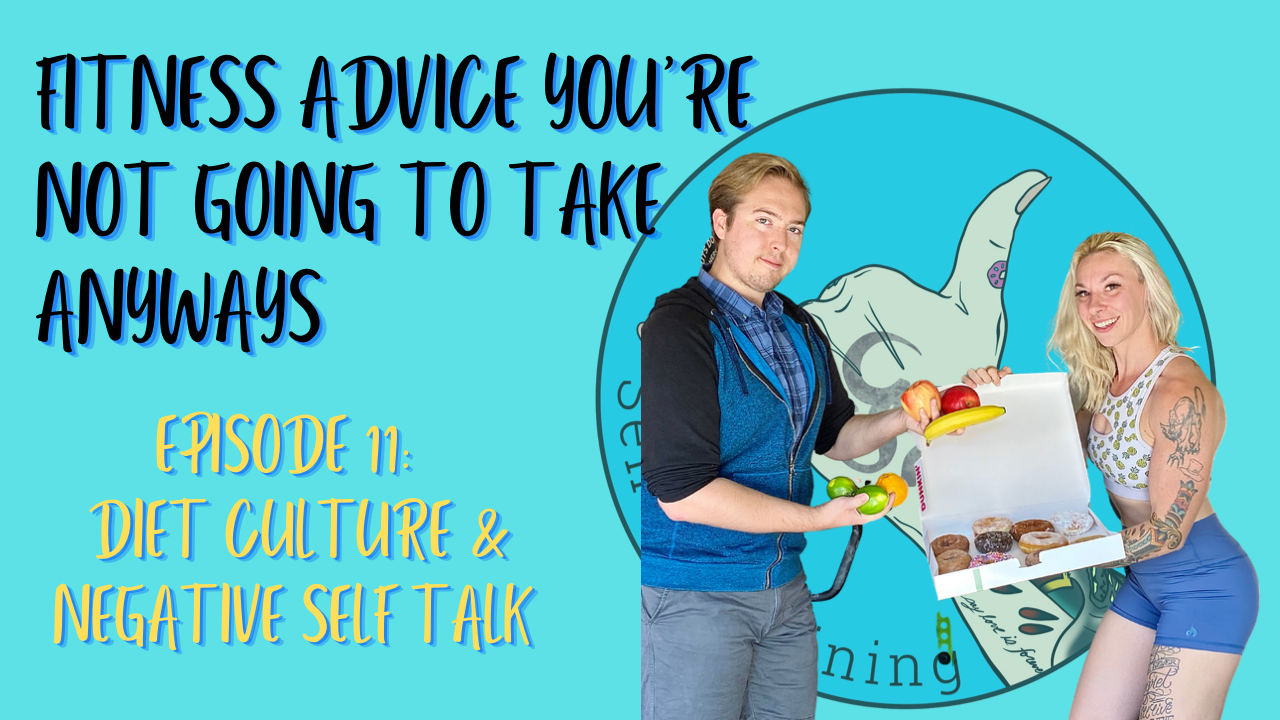
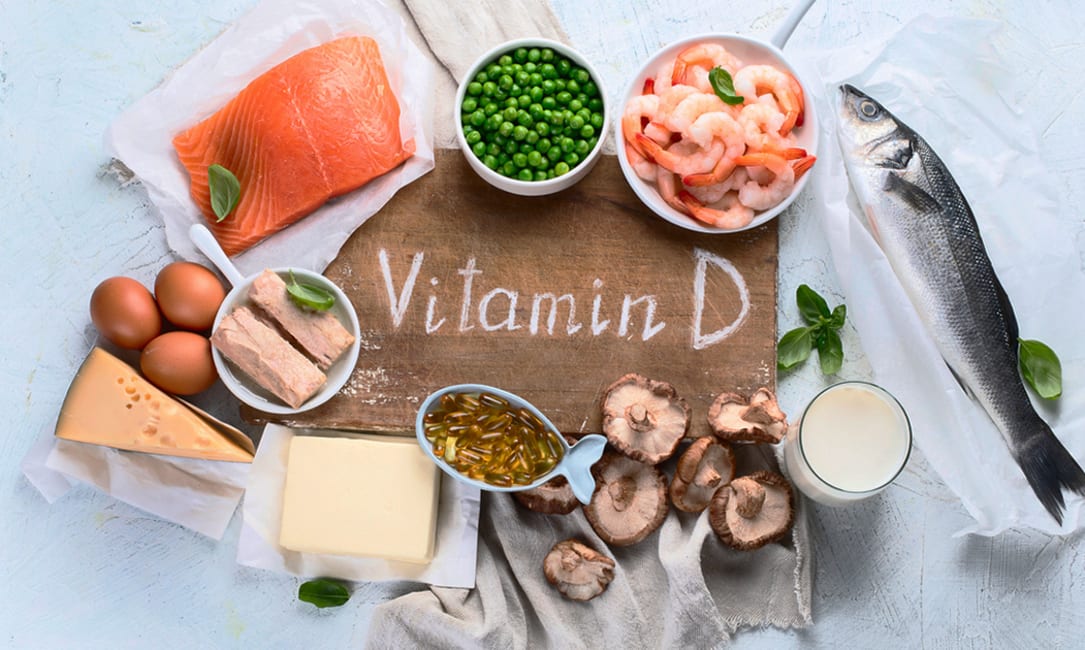
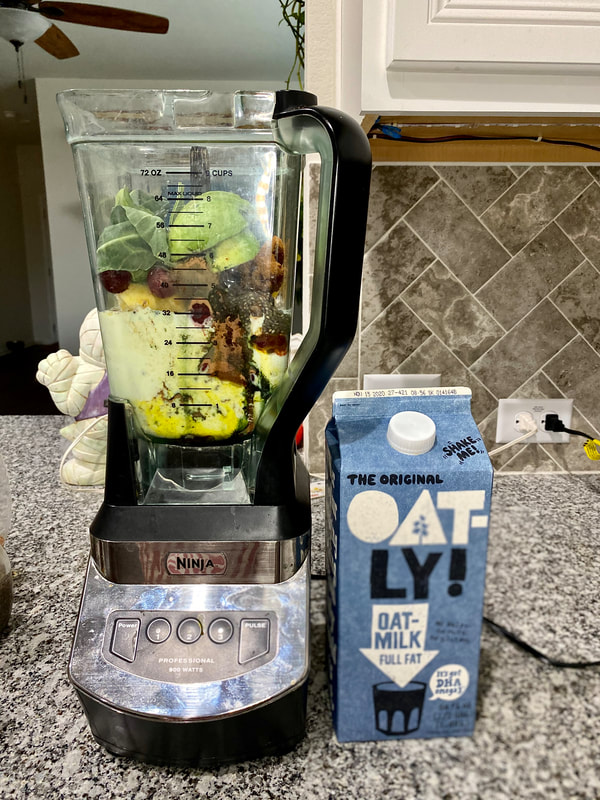
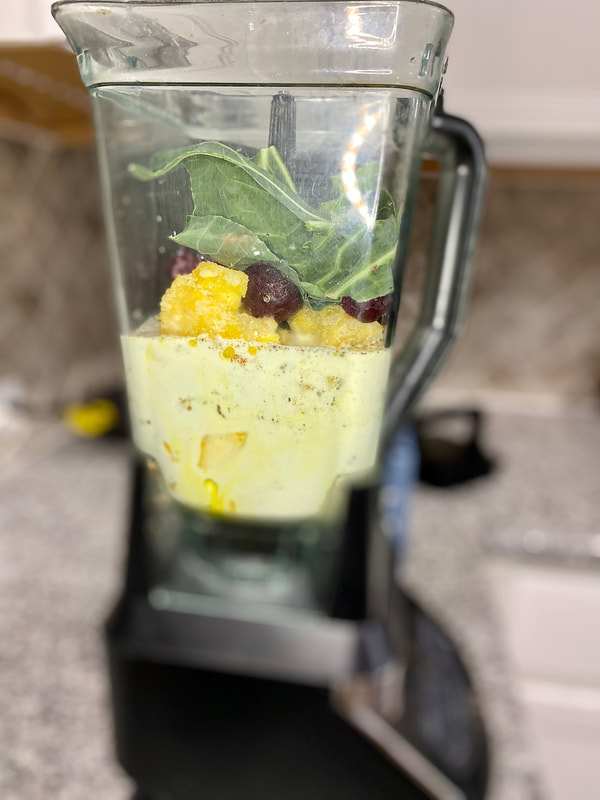
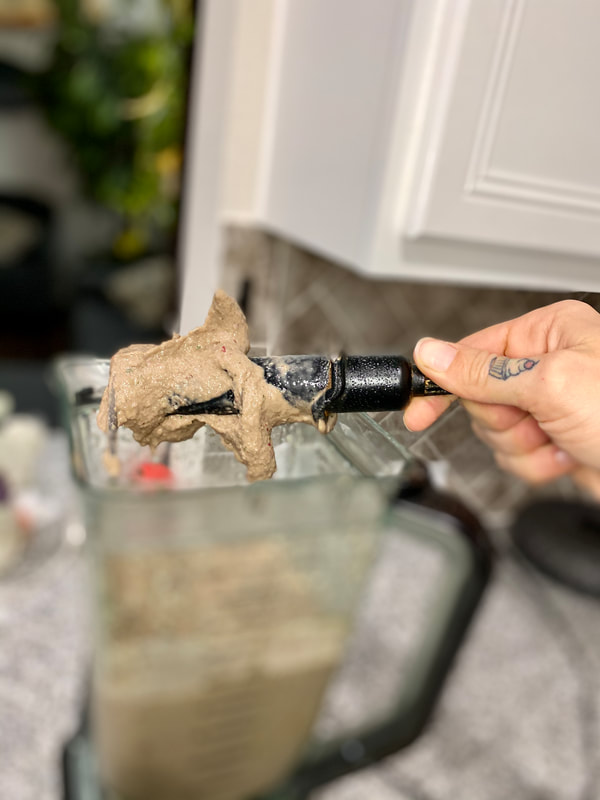
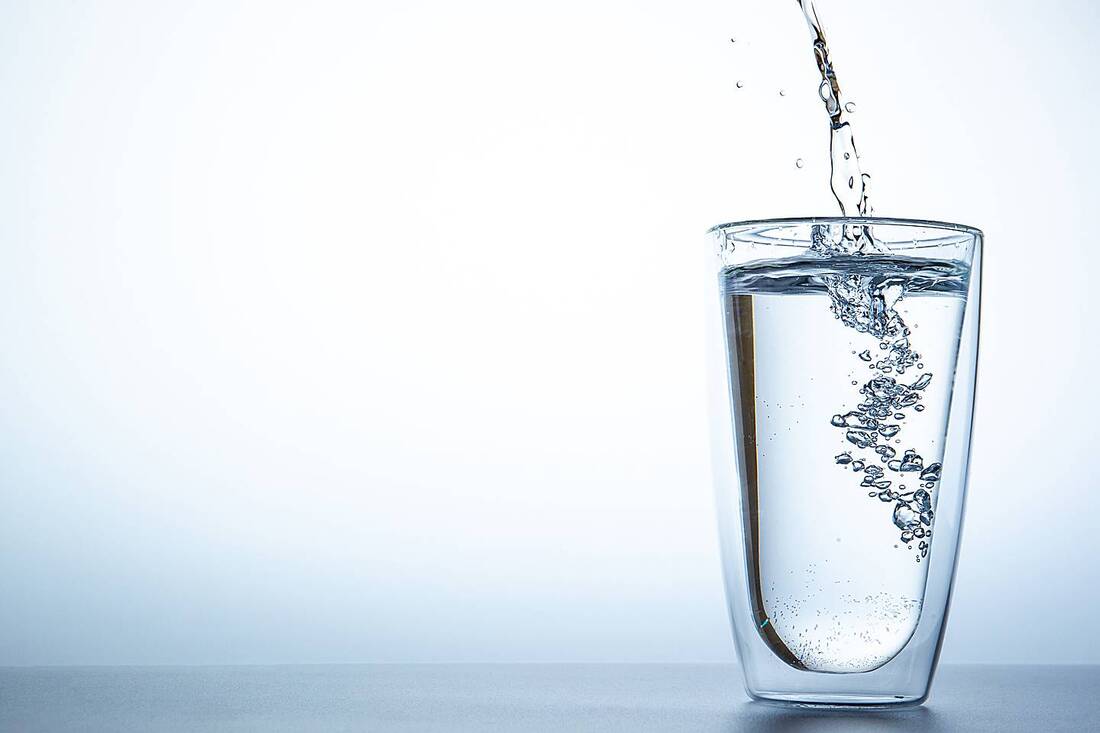
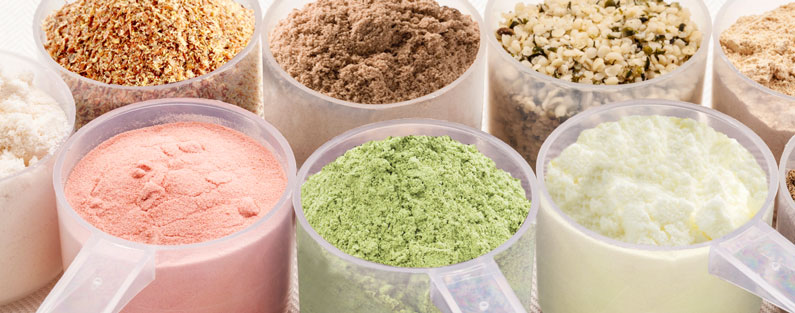
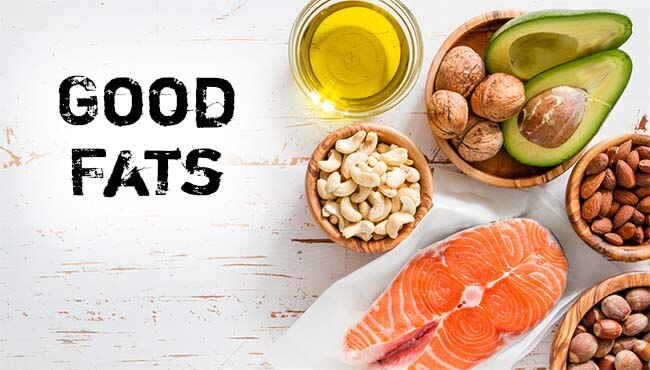
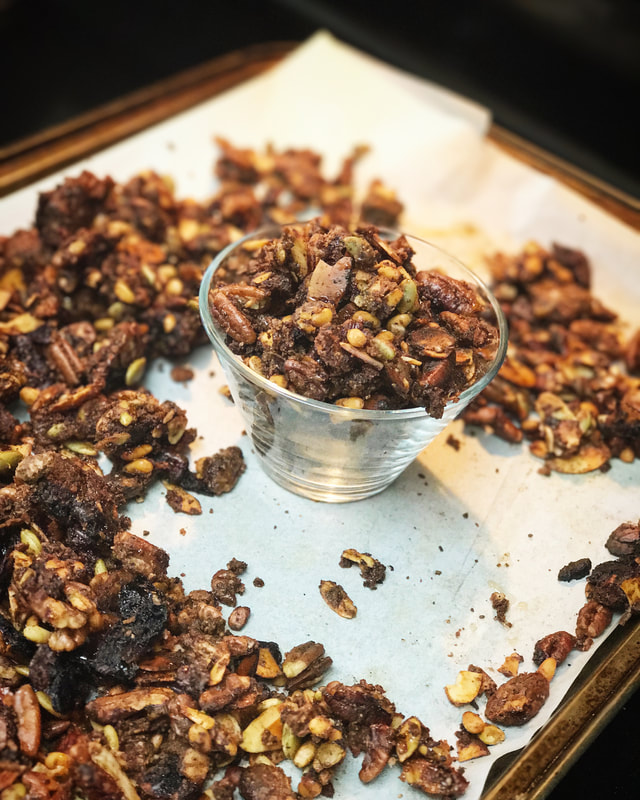
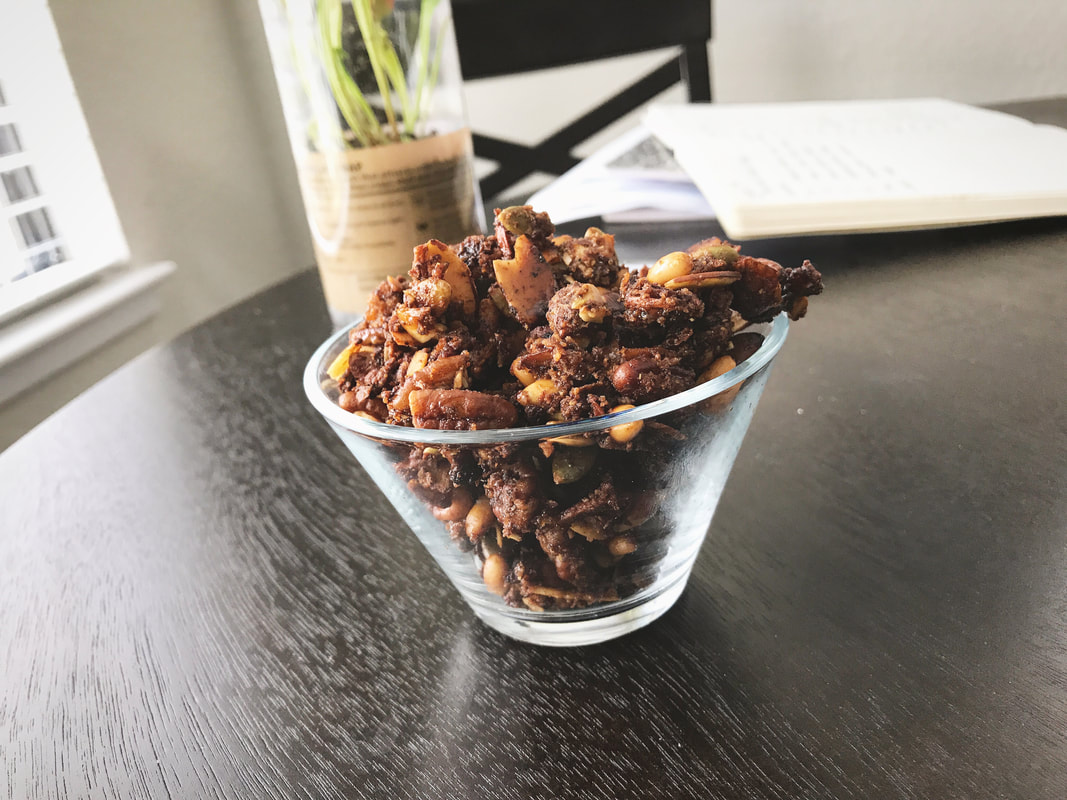
 RSS Feed
RSS Feed